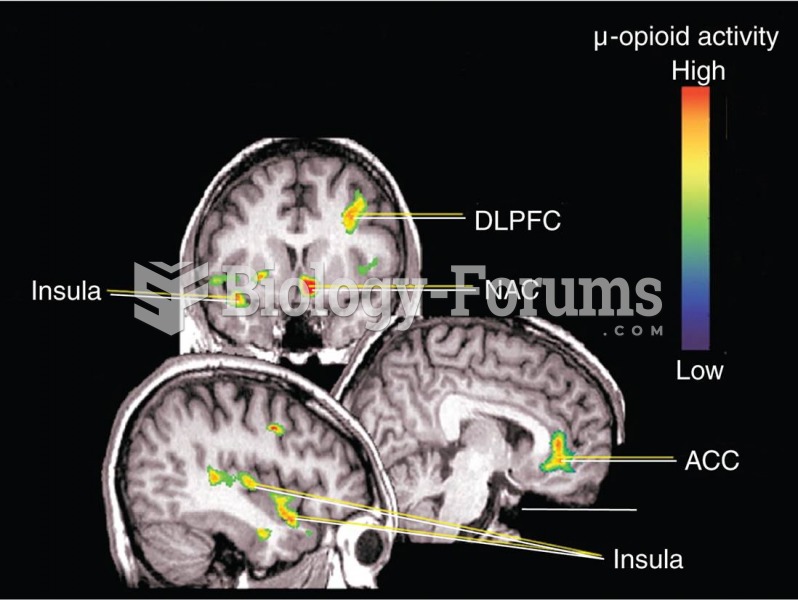|
|
|
The immune system needs 9.5 hours of sleep in total darkness to recharge completely.
A good example of polar molecules can be understood when trying to make a cake. If water and oil are required, they will not mix together. If you put them into a measuring cup, the oil will rise to the top while the water remains on the bottom.
Aspirin may benefit 11 different cancers, including those of the colon, pancreas, lungs, prostate, breasts, and leukemia.
Automated pill dispensing systems have alarms to alert patients when the correct dosing time has arrived. Most systems work with many varieties of medications, so patients who are taking a variety of drugs can still be in control of their dose regimen.
Throughout history, plants containing cardiac steroids have been used as heart drugs and as poisons (e.g., in arrows used in combat), emetics, and diuretics.
 The ovaries. In addition to producing ova, the ovaries secrete the female sex hormones, estrogen and
The ovaries. In addition to producing ova, the ovaries secrete the female sex hormones, estrogen and
 Apply draining stroke to forearm. Hold forearm off of the table with one hand. With the other hand, ...
Apply draining stroke to forearm. Hold forearm off of the table with one hand. With the other hand, ...





